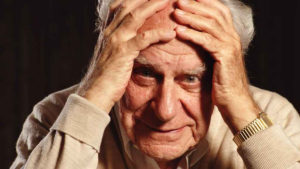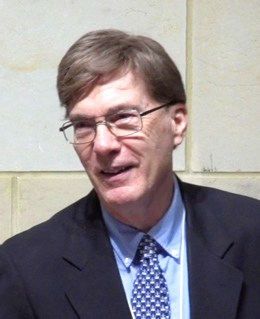From the President: An Oxfordian Consensus?
by Tom Regnier
Who would dare assert that we know all there is to be known?
— Galileo Galilei, Letter to Father Benedetto Castelli, Dec. 21, 1613
This essay was originally published in the Shakespeare Oxford Newsletter, v. 53, no. 1 (Winter 2017) (pp. 2–4); republished on the SOF website, July 10, 2017 (some new relevant links added, 2021).

There have been some recent discussions among Oxfordians about the future of the movement. Some are concerned that the Oxfordian theory will never overcome the well-entrenched Stratfordian theory until Oxfordians agree on a clear and coherent theory that explains a number of “loose ends” about Oxford’s authorship. For example, was Shakspere Oxford’s “frontman” during Shakspere’s life? Was he merely a posthumous frontman after publication of the First Folio? Did Oxford write all the plays by himself, or did others write at least a part or all of some plays? Why did Oxford use the pen name “Shakespeare” (or “Shake-speare”)? Might Oxford have written under other pen names? Why did Oxford’s authorship have to be kept secret after his death? Why did Oxford dedicate two narrative poems to the Earl of Southampton? Was Southampton the “fair youth” of the sonnets? Who was the “dark lady”? Who was the “rival poet”?
Oxfordians are not unanimous on any of these questions. It has been suggested that we can never prevail over the Stratfordian theory until we come to a consensus on such questions. It has also been suggested that some of the more radical Oxfordian theories — such as the “Prince Tudor” (PT) theory, which posits that Southampton was the illicit child of an affair between Oxford and Queen Elizabeth — subject the Oxfordian cause to ridicule and that PT advocates should be banished, repudiated, or otherwise shunned.
Let me register here my opinions: (1) Oxfordians do not need to arrive at a consensus in order to dethrone the Stratfordian theory; (2) radical Oxfordian theories are not the primary threat to our movement; and (3) it hurts our cause to suppress and blame others in the movement, rather than concentrate on spreading the Oxfordian message to the world.
Do we need a consensus in order to prevail?
To those who say we need a coherent theory with no “loose ends” in order to defeat the Stratfordians, let me offer a counterexample: the Stratfordian theory itself. This theory’s utter lack of coherency, consistency, and evidentiary support has not kept it from ruling the stage for centuries.
Do Stratfordians agree on who was the fair youth? The dark lady? The rival poet? How do they explain the apparent love triangle described in the Sonnets? Do they agree on the dates of the plays? Do they agree about whether their candidate was a secret Catholic? Do they come even close to having a satisfactory explanation of how the Stratford man, with at most a grammar school education, learned so much about law, philosophy, classical literature, ancient and modern history, mathematics, astronomy, art, music, medicine, horticulture, heraldry, the military, Italy, and aristocratic sports, that his easy knowledge of these subjects is evident in the works?

We do not need to agree on all the particulars of Oxford’s authorship to win over the public mind. “Consensus” is a will-o’-the-wisp, a mirage. I am always suspicious when I hear that a particular question is “settled” or that there is a “consensus” on it. To say such things is to underestimate the infinite layers of knowledge that the universe offers for our examination. Now that I have quoted Galileo in the epigraph to this article, let me quote Sir Karl Popper (1902–94), one of the greatest philosophers of science of the 20th century:
The game of science is, in principle, without end. He who decides one day that scientific statements do not call for any further test, and that they can be regarded as finally verified, retires from the game.
There will always be more questions and there will never be absolutely complete and settled answers. But we can always get closer to certainty, even if we can never reach it.
While Stratfordians endlessly research minor issues, they miss the big picture. “Consensus,” at least about the author’s identity, is what they want. They want the issue to be “settled.” They wish that dissenters would just go away and stop bothering them. They have retired from the game. That is why they will lose in the end. The greatest literary revelation of all time is right under their noses and they won’t even look at it.
Are radical Oxfordian theories the real threat?
Stratfordians want easy targets. This is why they devoted three chapters in Shakespeare Beyond Doubt (Edmondson & Wells eds. 2013) to Delia Bacon. It is very easy to portray her as a woman who wrote an “unreadable” book on the authorship question and then went mad. The implication is clear: Stay away from the authorship question or you too will go mad.
Stratfordians laugh at Looney’s name. They call us snobs. They argue that Oxford died before many of the plays were written (see FAQ #4). Besides, they say, Shakespeare must have been ignorant because he didn’t know that Bohemia didn’t have a seacoast (it did during some historical periods) and that you couldn’t go from Verona to Milan by boat (you could, via river and canal). Yet the Stratfordians barely mentioned the PT theory in Shakespeare Beyond Doubt, which seems strange if it is such an Achilles’ heel for us.
Stratfordians will use any perceived or pretended weakness in non-Stratfordian theories against us, and they won’t bother to present our theories fairly. Shakespeare Beyond Doubt didn’t face up to the arguments made in the major works by authorship doubters. Diana Price wasn’t mentioned. Looney was quoted out of context though his thesis was never refuted. Mark Anderson’s meticulous biography of Oxford was dismissed with a sneering comment.
No matter how clear and cogent our arguments are, the Stratfordians will distort them and disparage them. But that tactic cannot prevail in the long run because intelligent people will eventually notice that constant, shallow ridicule is no substitute for rational discussion and presentation of evidence.
What should we do?
The authorship question is a political struggle. It concerns the power that some people have over others — the kind of “politics” that occurs in families, schools, churches, businesses, and academia. It’s about getting one’s way through force or authority or intimidation rather than through the strength of good ideas or noble actions. Stratfordians rule the Shakespeare narrative, especially in universities. They decide who gets the jobs, who gets published, and who gets tenure. What would happen to their jobs if the Oxfordian thesis were to prevail?[pullquote]The Shakespeare Birthplace Trust thrives on the Stratford myth. They also thrive by playing “divide and conquer” among non-Stratfordians.[/pullquote]
The Shakespeare Birthplace Trust thrives on the Stratford myth. They also thrive by playing “divide and conquer” among non-Stratfordians. It isn’t that we shouldn’t debate our theories among ourselves, but we should not be blaming each other for not making greater headway against the myth.
Many years ago, I was involved in a campaign that successfully amended the constitution in my state. One of our key strategies was to work together with other groups that agreed with us on that issue even if they didn’t agree with us on anything else. That is how political action gets done. Oxfordians agree that Oxford was Shakespeare. Yes, we differ on the details, but we will make more progress in this political fight if we work together. When you are in a political fight, you can’t afford to drive away allies.
That is why the SOF is an inclusive group, one in which all aspects of the Oxfordian theory can and should be freely and openly discussed. As I argued in my presentation, “The Law of Evidence and the Shakespeare Authorship Question” (on the SOF YouTube Channel), the circumstantial evidence for Oxford as Shakespeare is compelling. In a court of law, most cases can be proven entirely with circumstantial evidence. No other candidate, in my opinion, has a stronger case than Oxford, based on the evidence we have at this time. The majority of rational, open-minded people who are presented with the evidence usually see this with little difficulty. Witness the “How I Became an Oxfordian” series on the SOF website — a succession of rational, intelligent people, one after another, describing how they followed the evidence that led them to Oxford.
For the past few years, I have been giving introductory talks on the authorship question to people who were fairly new to the subject. The audience reaction is very gratifying. People are fascinated. We don’t need to be pointing fingers at each other over the dismal state of the Oxfordian movement because it isn’t dismal. We are winning, slowly but surely — as you will find if you talk to the general population. We just need more of us to get out there and spread the word. Every Oxfordian is a lighted candle in the Stratfordian darkness.
We need to stop turning our attention inward on each other and turn it outward, to the wide world of people who are eager and ready to hear our message. Let’s get out there. The world is waiting for us.
About the Author

Tom Regnier (1950–2020) earned his J.D. summa cum laude in 2003 at the University of Miami School of Law, where he taught “Shakespeare and the Law” for many years as an adjunct professor. He earned his LL.M. in 2009 at Columbia Law School, where he was a Harlan F. Stone Scholar. He also taught at Chicago’s John Marshall Law School. He became a prolific independent Shakespearean scholar, combining his interests in Shakespeare and the law. He served as President of the SOF (2014–18) and was honored as Oxfordian of the Year in 2016. You can read here about his final public lecture, on the centennial of the Oxfordian theory, with links to his obituary, his major writings and speeches, and much additional information.
Membership dues cover only a fraction of our budget, including all our research, preservation and programming. Please support the SOF by making a gift today!
Blue Boar Tavern: Wassail Q&A
Tuesday Dec. 17, 8pm E / 5pm P
Sign up below for event invites!
